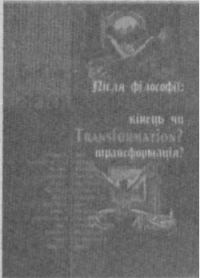Derrida, J. (2000). The Ends of Man. In K. Baines (Ed.), After Philosophy: End or Transformation? (pp. 7 – 40). Kyiv: Fourth Wave.
Keywords:
Jacques Derrida, humanism, existentialismSynopsis
The material is a translation of Jacques Derrida's article, which was intended for a colloquium on “Philosophy and Anthropology” held in New York in October 1968. In his article, Derrida examines the problem of the status of anthropocentrism in contemporary Western philosophical thought. He notes that in postwar French philosophy, humanism was a dominant feature common to Christian and atheistic existentialism, personalism, and Marxism. Such humanism was based on an anthropological reading of the ideas of Hegel, Husserl, and Heidegger and did not problematize the cultural-historical and linguistic implications of the concept of “human.” Referring to Hegel's philosophy, Derrida points to the teleological nature of any humanistic metaphysics.
Further attempts to distance themselves from humanistic theology and ontology, according to Derrida, failed to go beyond the boundaries of humanistic discourse. Particular attention is paid to Heidegger's work. The philosopher argues that, despite Heidegger's rejection of humanism as inseparable from metaphysics in his “Letter on Humanism,” his concept of “Dasein” is nothing other than a human being. From this, Derrida concludes that humanistic definitions of humans as “animal rationale,” “personality,” or as a spiritual-physical being do not fundamentally contradict Heidegger's philosophy, but are only rejected by him as incapable of grasping the true essence of humans.
Downloads




